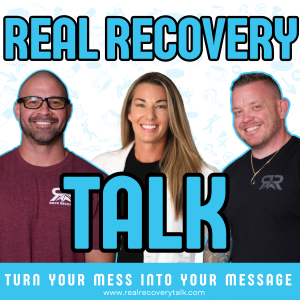
Tom and Ben are going to be talking about using your time efficiently in recovery. They will be referencing the movie Moneyball, because there are many parallels between the movie and using your time efficiently in recovery. In the movie, the manager, played by Brad Pitt, gets rid of his star players who swing for the fence and replaces them with players who focus on just getting on base.
The main parallel is the importance of incremental steps. You can’t change everything at once. It’s important to get sober and then work on life skills to properly transition back to real life and stay sober. Getting a job and paying your rent is an important first step to living real life while being sober. We talk about how these principles apply to the client, the facility, and the family or loved ones of the client.
Show Notes:
[04:35] Average players get on base. One base at a time, you still get the same amount of points. It's just playing it safer. [05:03] In treatment, there is a limited amount of time, so it has to be used efficiently. [06:01] Sometimes people in treatment want to change everything about themselves right now. [06:25] It's important to recognize at the primary purpose of treatment is to get off of drugs and alcohol. Setting the bar too high sets unrealistic expectations. [07:05] What we're asking clients to do is make progress. You don't have to go from 0 to 100 in 5 seconds. [07:10] We want to take incremental steps and continue to progress. [08:04] It's the responsibility of the family, loved ones, and clients to pick a facility that fosters an environment for progress. [08:31] You need something worth hanging onto after you stop drugs and alcohol. [09:40] IOP intensive outpatient is the step after the inpatient lockdown part. It's the transitional step that goes from treatment into the real world. [11:33] The responsibility of the facility should help clients acclimate to the real world. [13:41] Clients have a responsibility to look for work. [14:24] During IOP, clients need to take ownership of their own recovery. [14:37] Being in recovery is an opportunity to work on yourself and only yourself. [15:09] We want clients to take incremental steps and make a resume and map out potential jobs. [16:45] Clients need to progress and get to the steps that will make them self-sufficient. [18:59] Parents can unwittingly work against the progress of their loved one by making it too easy for them and not expecting them to get a job. [20:07] To get in a sober house, you have to have at least 30 days of sobriety. You have to be employed and pay the $150 a week rent on your own. [20:38] It comes down to a sense of accomplishment and ownership in one's recovery. [21:21] Don't let your whole recovery ride on a job offer. Have something in case your big plans fall through. [26:14] We are supposed to be exposed to things like bills and work during treatment. [27:24] Set yourself up for success where you are at today. [28:16] We see more success with clients that just go and do it.Links and Resources:
MoneyballMore Episodes
 2023-07-23
2023-07-23
 2023-07-19
2023-07-19
 2023-07-12
2023-07-12
Create your
podcast in
minutes
- Full-featured podcast site
- Unlimited storage and bandwidth
- Comprehensive podcast stats
- Distribute to Apple Podcasts, Spotify, and more
- Make money with your podcast
It is Free
- Privacy Policy
- Cookie Policy
- Terms of Use
- Consent Preferences
- Copyright © 2015-2024 Podbean.com





